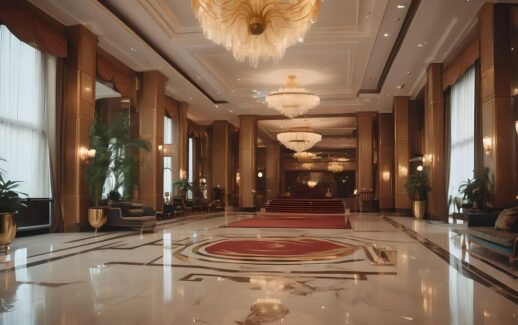4: Marcus
Now
In the time it takes him to slowly blink three times, Marcus has catalogued almost one hundred objects in the room which, should he need to, his dark and agile hands can later turn to weaponry.
The first blink and his mind measures the lobby’s dimensions, retrieves the opulent topography of its shapes and furnishings – the copper marbled floors and pillars, complex chandeliers, tall and verdant plants, low and wide waiting sofas, deep reception desk, piano – then rebuilds them into a faithful mental analogue. He has noted five exits, including the sliding glass entrance-doors he has just stepped through but excluding the four elevators, made unreliable through timing and potential for loss of power.
Marcus blinks again and populates this internal, visual lobby with the people he sees: the Night Manager, the desk clerk, the piano-player, the bellhop, the quietly waiting couple, the drunk and squabbling party of six business people, negotiating cab fares. Already he has assessed each for threat and weakness, timed how long it will take him to cross the room, and calculated the moments and movements required to close them down.
Lowering his eyelids and raising them again, he has accounted for all the potential weapons of harm and delay in the lobby: the bell on the reception desk, the tables, the chairs, the hard-copy magazines in the silver wall-racks, the plastic finance cards in the pockets of the squabbling party, the gold pen in the breast-pocket of the Night Manager, the chain of keys on the belt of the bellhop. The catalogue continues exhaustively: location of, and access to, each noted and stored.
Had Marcus a heart, it would have beat five times in the space it takes him to drink deep of these details. As it is, he pretends to breathe, consults his watch, remarks that the time has just crossed into midnight, and goes to work.


